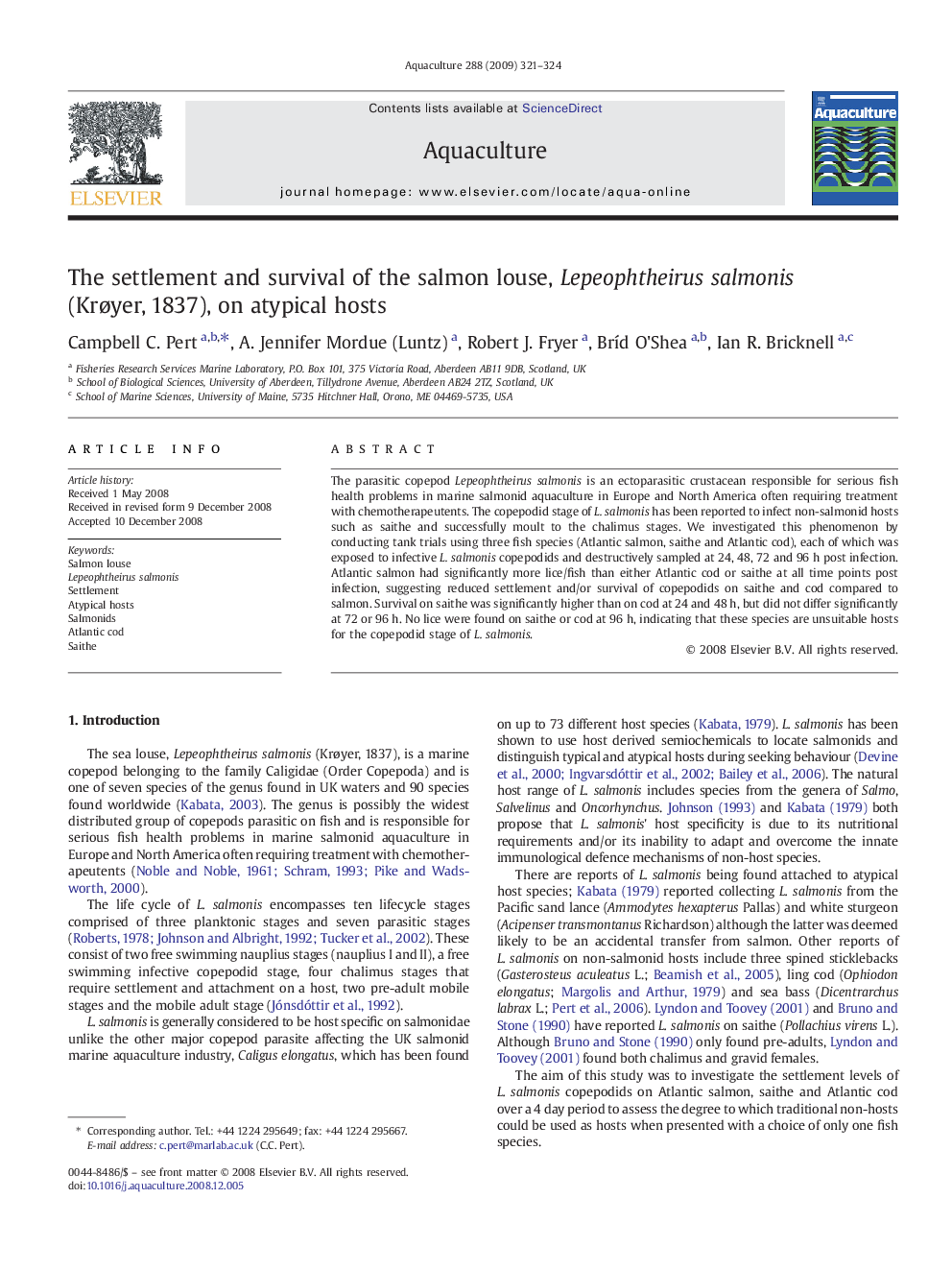| Article ID | Journal | Published Year | Pages | File Type |
|---|---|---|---|---|
| 8496177 | Aquaculture | 2009 | 4 Pages |
Abstract
The parasitic copepod Lepeophtheirus salmonis is an ectoparasitic crustacean responsible for serious fish health problems in marine salmonid aquaculture in Europe and North America often requiring treatment with chemotherapeutents. The copepodid stage of L. salmonis has been reported to infect non-salmonid hosts such as saithe and successfully moult to the chalimus stages. We investigated this phenomenon by conducting tank trials using three fish species (Atlantic salmon, saithe and Atlantic cod), each of which was exposed to infective L. salmonis copepodids and destructively sampled at 24, 48, 72 and 96Â h post infection. Atlantic salmon had significantly more lice/fish than either Atlantic cod or saithe at all time points post infection, suggesting reduced settlement and/or survival of copepodids on saithe and cod compared to salmon. Survival on saithe was significantly higher than on cod at 24 and 48Â h, but did not differ significantly at 72 or 96Â h. No lice were found on saithe or cod at 96Â h, indicating that these species are unsuitable hosts for the copepodid stage of L. salmonis.
Related Topics
Life Sciences
Agricultural and Biological Sciences
Aquatic Science
Authors
Campbell C. Pert, A. Jennifer Mordue (Luntz), Robert J. Fryer, BrÃd O'Shea, Ian R. Bricknell,
